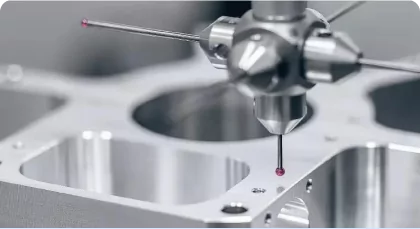custom aluminum die casting mold makers in China
Die Casting Molding: A Practical Guide for Manufacturers
Die casting molding is a widely used manufacturing process for producing high-volume, dimensionally stable metal components. By injecting molten metal into precision-machined steel molds (dies) under high pressure, manufacturers can achieve complex shapes with excellent repeatability. From automotive to electronics, die casting remains essential in modern product development.
In this article, we’ll explore how die casting molding works, its advantages, common applications, and what to consider when sourcing die casting mold suppliers—especially for custom aluminum and zinc parts.
What Is Die Casting Molding?
Die casting molding involves the injection of molten metal into a hardened steel mold cavity under high pressure. The mold consists of two halves: the stationary half (cover die) and the movable half (ejector die). After the metal solidifies, the mold opens, and the part is ejected.
This process is best suited for non-ferrous metals such as:
Aluminum
Zinc
Magnesium
There are two primary types:
Hot chamber die casting (ideal for zinc, magnesium)
Cold chamber die casting (suitable for aluminum, brass)
Benefits of Die Casting Molding
Die casting offers a compelling mix of speed, precision, and surface quality. Key advantages include:
1. High Production Efficiency
Once tooling is complete, the process is fast and consistent—ideal for high-volume production.
2. Dimensional Accuracy
Tight tolerances reduce the need for secondary machining.
3. Complex Geometry
Thin walls, fine details, and internal features can be molded directly.
4. Excellent Surface Finish
Parts often require little or no post-processing for appearance.
5. Material Utilization
Minimal waste thanks to precise cavity filling and reusable excess material.
Common Applications of Die Cast Parts
Die casting is used across industries to produce robust, lightweight components:
Automotive: Engine housings, transmission cases, brackets
Consumer electronics: Enclosures, connectors, heat sinks
Industrial equipment: Pneumatic tools, pump bodies, levers
Home appliances: Fan blades, mounting plates, handles
Each application benefits from the strength and repeatability of pressure-cast components.
Design Considerations for Die Casting Molds
Successful die casting requires thoughtful mold design. Critical factors include:
Draft Angles
To allow for smooth ejection, surfaces must be angled slightly.
Wall Thickness
Uniform wall thickness ensures even cooling and reduces defects like warping.
Parting Lines and Ejection
Design must account for how the mold opens and how the part will be removed.
Venting and Overflow
Proper air evacuation helps reduce porosity and incomplete filling.
An experienced mold maker will guide clients through the best practices to achieve reliable results.
Sourcing a Die Casting Mold Supplier
When choosing a supplier for die casting mold design and production, consider the following:
Material knowledge: Experience with specific metals (e.g., aluminum, zinc)
Tooling quality: In-house CNC machining and mold testing capability
Tolerance control: Ability to meet tight dimensional and cosmetic requirements
Cycle life expectations: Steel grade and treatment suited for your production volume
Communication and support: Design-for-manufacturing advice and sampling process
Global buyers often turn to China for cost-effective, high-quality tooling, but careful vetting is essential.
How Alpha-Mold Supports Die Casting Molding Projects
At Alpha-Mold, we support clients in developing custom die casting molds tailored to their part requirements and production goals. Whether you're manufacturing complex aluminum housings or high-detail zinc components, our services include:
Collaborative mold design reviews
DFM analysis and flow simulations
Precision mold manufacturing using high-grade steels
Trial sampling and first article inspection (FAI)
Mold maintenance and after-sales support
We also provide low-volume pilot production to help clients validate parts before moving to full-scale production.
Die casting molding remains a versatile and efficient solution for producing strong, high-precision metal parts at scale. When designed and executed properly, it can significantly reduce cost per unit while maintaining exceptional quality standards.
If you're looking to develop a new product or improve your current metal components, Alpha-Mold is ready to assist with die casting mold design, fabrication, and testing—backed by years of experience and a global supply chain.








